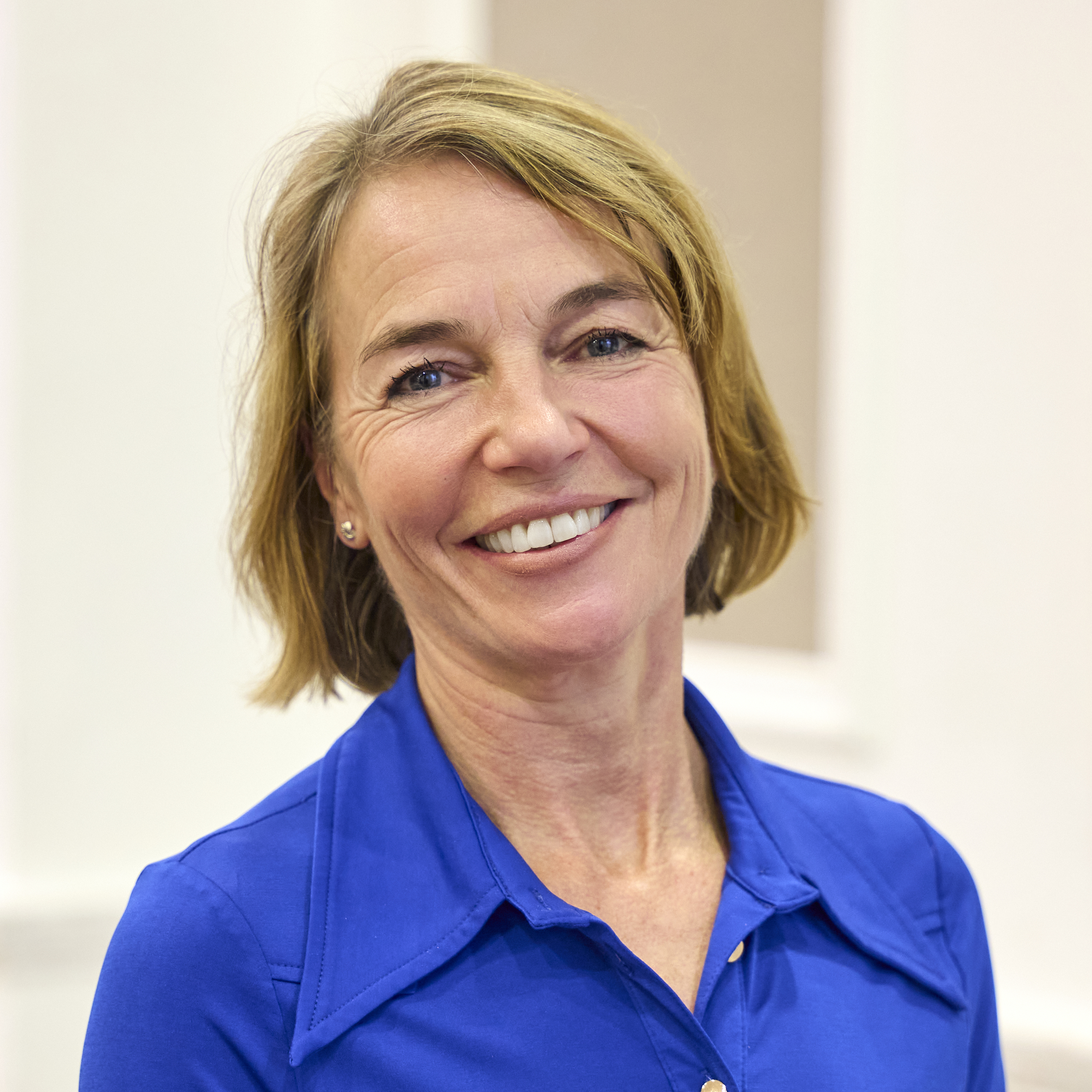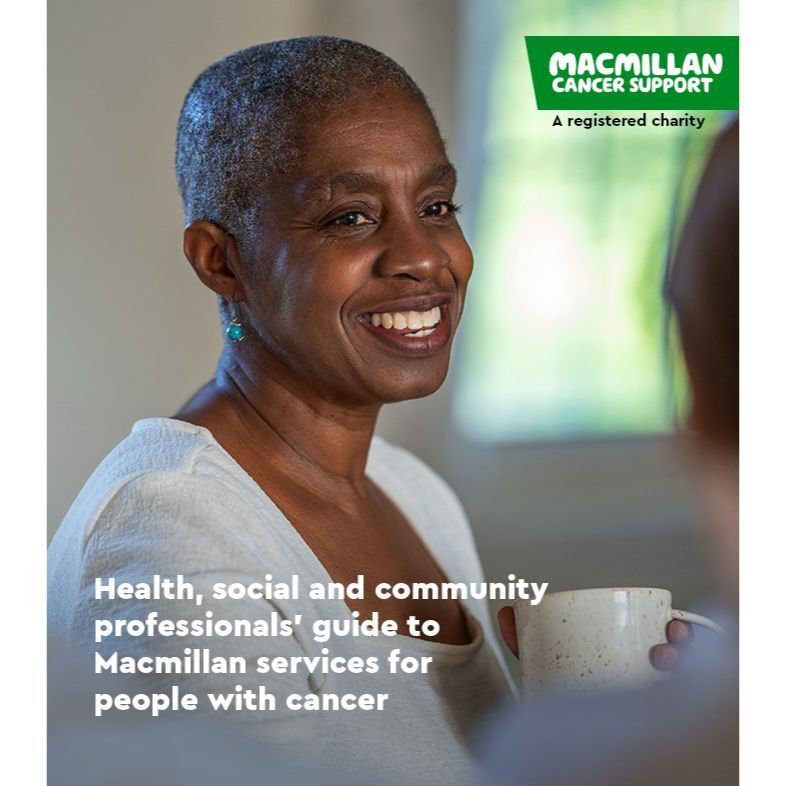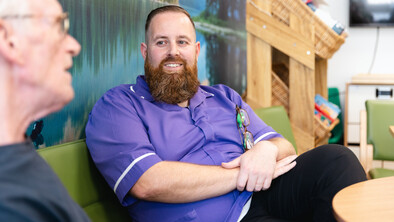Day in the life of a Senior Oncology Nurse
Meet Claire
Hi, I’m Claire - I’ve been a cancer nurse for nearly thirty years, and now I have the pleasure of being Chief Nursing Officer at Macmillan Cancer Support from Monday to Wednesday. Alongside this, I work as a Senior Oncology Nurse at London North West Healthcare NHS Trust.
My clinical day starts with answering the week’s emails; they will be a mix of questions from my patients, colleague requests and invitations to review papers or attend events. I often get asked by other cancer nurses for both clinical and professional advice. One of the great joys of the job are the deep connections you form with members of your clinical team and also wider clinicians across the country. It is wonderful to see people you have taught or supported, develop their careers and go on to inspire the next generation of cancer nurses. I established a network of colorectal cancer nurses nearly thirty years ago, which I am pleased to report is still running and now has over a thousand members.
Changes over time
Since I started working clinically in cancer care, at London Northwest University Hospitals NHS Healthcare, cancer treatments and nursing care has changed a huge amount: I was one of only five Macmillan nurses in the Trust back in the mid 1990’s, now we have ninety specialist nurses working across cancer and palliative care.
I also used to deliver chemotherapy to my patient group when our chemotherapy nurse went on holiday. This was considered a relatively straightforward intervention with only one chemotherapy drug available for people diagnosed with colorectal cancer at that time. Now there are over ten systemic anti-cancer therapies (SACT) available, and its administration is considered a completely distinct nursing role in cancer care with formal training and competency assessments.
Development of a programme of personalised care
On Thursdays I run a nurse-led end of treatment (EoT) clinic. We offer people completing cancer treatments comprehensive consultations, so the clinic takes up most of my day.
I have a particular interest in providing ‘after-cancer care’ (also described as follow-up care) and led many of the personalised care improvements across the Trust including:
- setting up Health and Wellbeing events
- piloting new follow-up pathways
- establishing a late effects clinic
- running the HOPE (Help to Overcome Problems Effectively) programme
- and training staff on how to conduct holistic needs assessments (HNA).
Much of my expertise in cancer survivorship came through my affiliation with Macmillan and a group Professor Jane Maher (a former Macmillan Chief Medical Office) created called the Consequences of Cancer Treatment Collaborative. I became very aware how many patients feel unprepared for what comes after treatment ends, with evidence indicating not all are living well with and beyond cancer.
Delivery of an End of Treatment consultation
This clinic is designed to offer support and information at an important transition point in their care: after anything from six to eighteen months of predominantly hospital-based cancer care. Patients are invited to complete an electronic holistic needs assessment (eHNA) before they attend which can then be discussed in detail in person.
There can be a wide range of concerns to address including pain, poor sleep, fatigue and sexual concerns. One of the ladies I saw last week expressed that her main anxiety was about the future. She was a single parent in her late forties and admitted that since finishing treatment she had become worried about how she would cope if her cancer returned.
I firstly acknowledged her feelings, tried to normalise them whilst also assessing if she might need more specialise support. Through the care planning conversation, I aim to address such concerns, enhance people’s ability to self-care and ensure all their future cancer surveillance is scheduled.
Between appointments I will send further written information, make onward referrals and liaise with their GP and others involved in their care, as needed. Each clinical contact brings its own administration, and I am fortunate to work with a Macmillan support worker, who sends out the letters and care plans to the patient and GP.
At the end of the day
I might squeeze some meetings in around the clinic before signing out for the day.
It takes me an hour to get home from the hospital in Harrow; I was taught years ago by a psychologist to use this time to reflect and unwind to avoid bringing work home. It proved to be very useful advice, as cancer nursing involves providing a highly skilled, compassionate person-centred care, which inevitably creates emotional demands when striving to do so within an increasingly pressured environment. Nevertheless, it remains a hugely rewarding role.
Stories And Media
-
Guides 28 Feb 2025Use this guide to quickly identify the services and channels that are best for the person you are helping.
-
Blogs 11 Mar 2025To celebrate National Cancer Clinical Nurse Specialist Day, Macmillan's Chief Nursing Officer Claire Taylor explores the impact the role has on cancer care and support.





